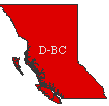HagridOfTheDeep
Junior Chimp
    
Posts: 8,763

Political Matrix
E: -6.19, S: -4.35
|
 |
« Reply #1 on: September 21, 2016, 01:09:12 AM » |
|
That sounds super interesting, Xahar. Like, it actually seems like a real paper. I write super flakey stuff. Here's something I did last April.
According to Edward Wilson, the American zoologist who coined the term, “biophilia” describes “the innate human urge to affiliate with other forms of life,” both flora and fauna, in the natural sphere. Biophilia, then, seems to be a string that connects people with place. Unsurprisingly, it is often encoded in “myths, religions, art, rituals, songs, and dances.” Although scholars like Gregory Cajete most often identify biophilia in Indigenous cultural expressions, I bring up the term here, at the start of an essay on wilderness and its role in Canadian citizenship, because biophilia—or, at least, an appropriated, manipulated, and political form of biophilia—has obviously become a foundational part of the Canadian story through similar means.
A recent trip to the local movie theatre confirmed this fact for me when the pre-show advertisements started to roll and I was treated to a particularly moving spot from Parks Canada. Accompanied by stirring music, the ad cycles through a number of short scenes: a man and woman walk their bikes up to the shoreline of a picturesque lake; a family of hikers looks out at the stunning mountain vistas; a mother and child enjoy an empty beach; friends have a musical jam session on the Canadian Shield. In a nod to biophilia and its constructed place in Canadian citizenship, the narrator embraces the wilderness as a place that provides “time to connect with nature.” Even more notable is the way he urges viewers to “find [their] red chair moment” as each of the actors settles in to enjoy Canada’s landscape from the comfort of a bright red Muskoka chair. The chair, it seems, represents the real Canada. Becoming a real Canadian thus requires sitting down in that metaphorical chair and interacting with the wilderness in a very particular way. But what happens when barriers, real or imagined, dissuade or prevent Canadians from accessing that chair? What does it mean for their place in Canada?
I didn't even get to my formal thesis statement there, lol. But you get the gist.
|

